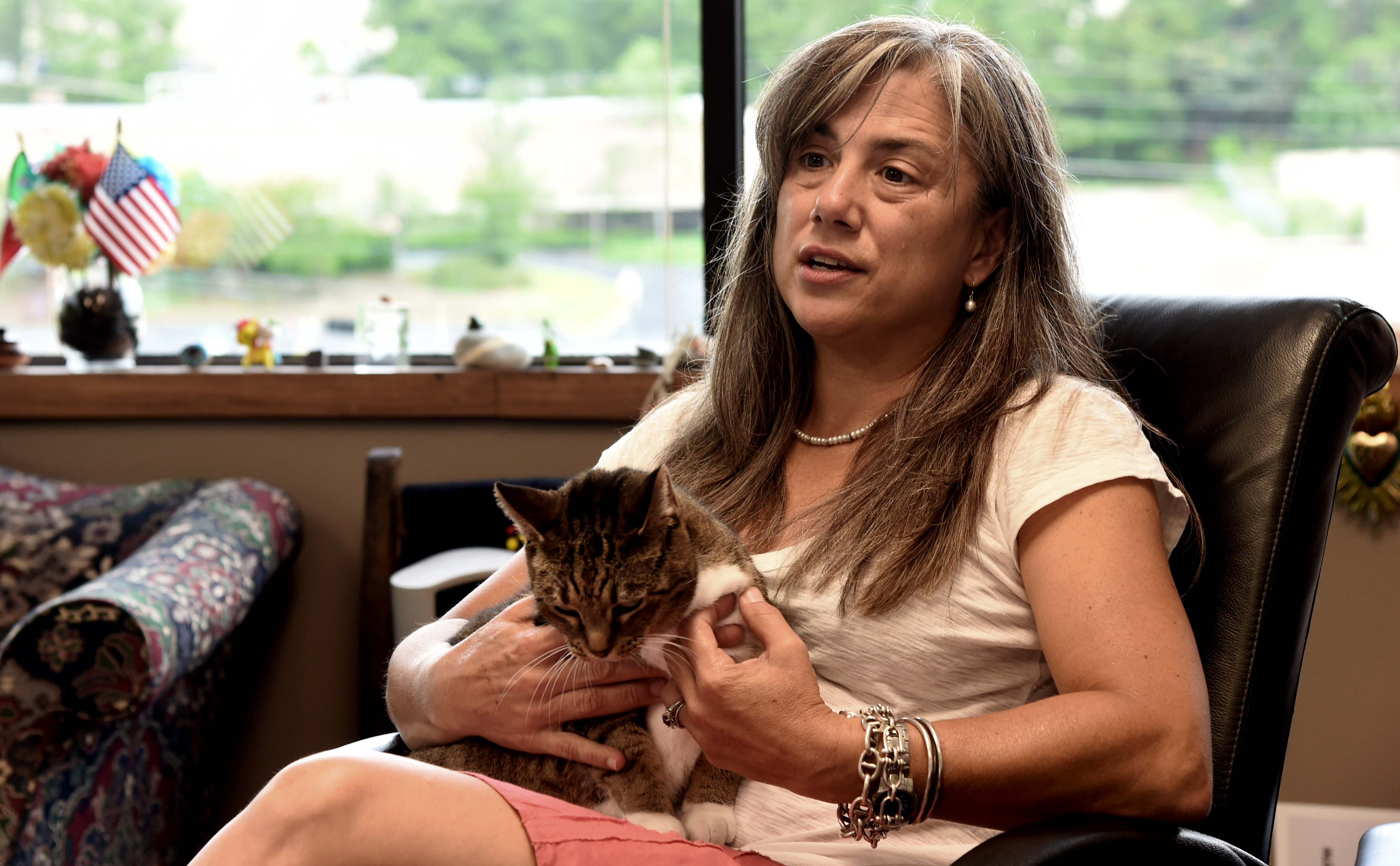
By Solomon Crenshaw Jr.
For the Birmingham Times

The Homewood offices of the Hispanic Interest Coalition of Alabama (¡HICA!) sit just a stone’s throw from the Birmingham city limit in an internationally diverse neighborhood. Some of the local businesses: Red Pearl Restaurant and Super Oriental Market; a Lebanese grocery store; a middle eastern market; an African restaurant; and a host of Latino establishments, including a western-wear store, barbershops, a night club, and a Popsicle place.
“We were intentional in wanting to be here,” said ¡HICA! Executive Director Isabel Rubio. “We work with the Latino community, but we know Latinos aren’t the only immigrants on the planet or in Birmingham. Our programs don’t serve Latinos only. We wanted to be in a place that was convenient for a lot of different people.”
¡HICA! exists to help people get acclimated to life in United States in general and Alabama in particular, Rubio said.
“That’s why I had to leave social services,” said Rubio, a former social worker at University of Alabama at Birmingham (UAB). “I felt like social services in so many ways make people dependent upon systems.”
¡HICA! mission is straightforward: the social, civic and economic integration of Hispanic families in Alabama. Its vision: an Alabama in which everyone has full and equal participation in our state’s civic, cultural, social, and economic life.
Everyone has a right to decent, safe housing and decent, well-resourced public education, Rubio said, everyone has the right to grow up with access to good-quality health care and access to good, healthy food.
Rubio moved to Birmingham in 1991 to add a social work degree at UAB to the history degree she already had. During the mid-1990s, the Latino population began to increase dramatically in metro Birmingham. Rubio and Lisa Theus, who worked at the Jefferson County Department of Health, noted the growth and wondered who might ease the transition for immigrants into the local society.
“I first thought, ‘This is so cool,’” Rubio recalled. “But then I thought, ‘Yikes. Do these people speak English? How acculturated and how acclimated are people to what exists?’”
Low-income people generally have a hard time getting what they need because of barriers that exist when one doesn’t feel empowered, she said: “Put on top of that language and cultural barriers and documentation status. What impact does that have on the Latino community?”
Rubio likes to say she “emigrated from Mississippi,” a reference to her having spent the first half of her life in McComb, Miss.
“It was a pretty heated place to be,” she said of the voter registration project in the Magnolia State in the summer of 1964, known as Freedom Summer. “There were more churches burned in Pike County, my county, than any other place in the whole country. That was the summer my parents got married and I was conceived.”
Rubio’s mother was the daughter of a Mexican immigrant who had come to New Orleans during the Mexican Revolution, and her father was white. Both of her parents have passed away.
“My mom, for the most part, considered herself a New Orleanian,” she said. “That’s how I am Mexican-American, even though I consider myself pretty much a white girl from Mississippi. That was the culture I was raised in.”
Rubio’s aim when ¡HICA! began was to find someone else to lead the organization.
“I can’t run this organization,” she said. “I don’t really speak Spanish.”
But Raul Yzaguirre, then president of the National Council for La Raza, changed her mind.
“[He] turned to me and said, ‘Isabel, you are the only person who can run this organization,’” Rubio remembered. “When he said that, I said he sees something I don’t see. I just have to believe what he believes, just keep doing what I’m doing, and go forward.”
Click here to read more about the Hispanic Interest Coalition of Alabama.




